The hottest national holiday weekend Saturday since 1871 may have contributed to it, but Lucky Break pitiful UK opening weekend box office of (£348,613) from 270 sites nationwide suggests a .
Screen International's Nick Hunt tracks the development of the movie that everyone expected to be a hot hit.
1998-99
In the wake of his small-scale comedy The Full Monty. young UK director Peter Cattaneo is nominated for an Oscar and deluged with script offers following the magnificent success of the 1997 film about unemployed men who become strippers. Made for $3.6m (£2.5m), the film grosses $256.9m around the world. "It was mad," he recalls. "But none of the proposals I got after it made me go: 'Woah!'"
For his next film, Cattaneo, who wanted to keep the project in the UK for family reasons was inspired by features such as The Great Escape and the Ealing comedies of the 1940s and 1950s. He comes up with a comedy pitch about an ensemble of prisoners staging a musical to hide their jailbreak. Elinor Day, deputy head of production at FilmFour, who produced Cattaneo's 1995 clubbing film Loved Up for BBC TV, is taken by the pathos and humour in the film-maker's vision of jail life and believes it is perfect for FilmFour. "At that time our intention was to move away from smaller parochial films and into films with international break-out possibilities," she says.
Day then brings writer Ronan Bennett onto the project. The two worked on Antonia Bird's 1997 crime feature Face and Day believes Bennett's gallows humour will capture the prison mood. Bennett has himself also spent time in jail in Northern Ireland and England, but was later released on appeal. However, over several drafts Bennett also develops a love story centred on the rough diamond lead and an upper-class teacher who works at the prison. Impressed with this storyline, Cattaneo downplays the proposal's gritty realism for romantic comedy escapism.
Barnaby Thompson of Fragile Films - who produced Cattaneo's Oscar-nominated short Dear Rosie in 1990 Ñ comes on board in September 1999. Thompson, who with Cattaneo tried to make a feature version of Dear Rosie in the US after The Full Monty, likes the script but feels that more balance needs to be struck between the strong ensemble characters, the plausibility of the escape and the burgeoning romance.
Spring 2000
With the project greenlit, casting begins. The ensemble support are mostly agreed in one day, while Christopher Plummer is cast in the key role as the prison's governor. "There was something fabulous about having the guy who sang Edelweiss [in The Sound Of Music] being the guy who writes the musical," says Thompson. First choice Olivia Williams signs on as the female lead. Composer Anne Dudley, who won an Oscar for The Full Monty, scores the film's musical, with English actor and satirist Stephen Fry writing the lyrics.
May-June 2000
Germany's Senator Film puts up 25% of the $10m budget in early spring through an output deal with FilmFour. With the project pitched as Cattaneo's follow-up to The Full Monty, it is easy to attract sales and finance, even though a male lead is still to be cast because all the suitable UK actors are unavailable.
At Cannes, Thompson and FilmFour's chief executive Paul Webster start negotiations for US and Australian/New Zealand rights with Miramax co-chairman Harvey Weinstein. However, Paramount also shows strong interest and a joint deal is finally concluded, echoing that between the two US majors for 1999's The Talented Mr Ripley. "The deal uses Paramount's distribution muscle and Miramax's marketing nous," Webster tells Screen International at the time. Both companies, along with FilmFour, now account for the remaining 75% of the film's budget.
Meanwhile, Northern Irish actor James Nesbitt, who is known to international audiences through the 1999 film Waking Ned, becomes available and takes the male lead. Thompson explains he possesses the difficult-to-find mix of rogueish charm and criminal believability required. "We probably saw every [UK] actor between the age of 25 and 35. In some areas in England we have strength in cast and in others it is quite tricky."
Sept 2000
A prison set is built for the 11-week shoot at the UK's famed Ealing Studios in west London. The studios are part-owned by Fragile Films. The desolate Dartmoor Prison in south-west England is used for exteriors.
Cinematographer Alwin Kuchler shoots the interiors in Super 35 widescreen so that the confined prison environment will not have the look of a TV film. "We tried to give everything a great sense of scale so that when they are walking down the corridor it is the longest corridor you have ever seen," says Thompson.
One of the most contentious issues on set is how amateur the musical in the film should be. "We had jokey arguments when I said to the performers: 'You're too good with the singing and they said: 'We're not'. But it was actually very difficult to film," says Cattaneo.
Nov 2000-Sept 2001
During post-production, the film's romantic sub-plot becomes more apparent as a key strand and is backed by a good response among woman aged over 25 at test screenings in the US and UK. The decision is now taken to market Lucky Break as a romantic comedy, rather than an ensemble feature like The Full Monty.
"I am glad to get this one out of the way really," says Cattaneo, "so I won't have to keep wearing that T-shirt all the time, with 'Peter (Full Monty) Cattaneo' written on it. The Full Monty was a great collaboration, but the satisfaction from having been involved on this one from day one is tenfold."
Cattaneo is now developing Pobby And Dingan, based on Ben Rice's novel about an Australian girl and her imaginary friends, for FilmFour.

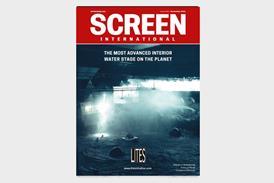
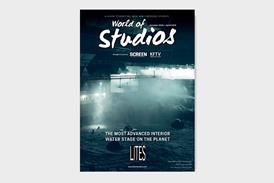
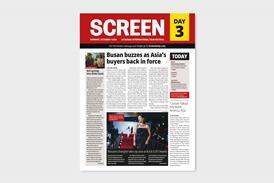
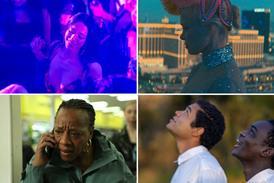
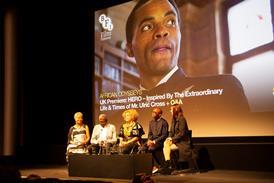
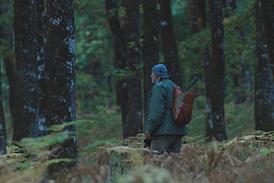
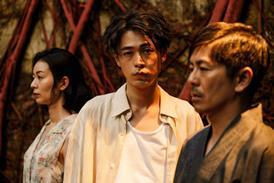


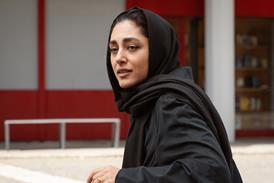

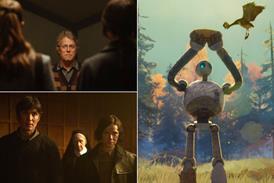


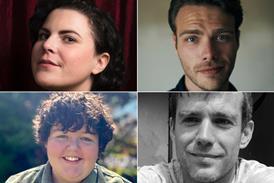
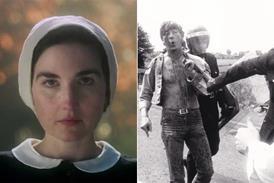

No comments yet